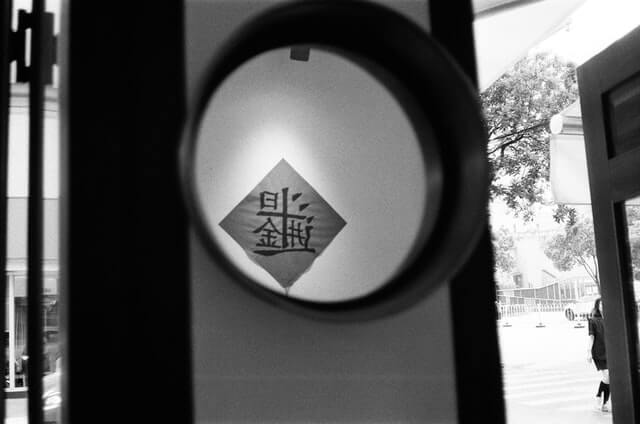Sue A Company in China: What Will Be Considered as Contracts by Chinese Judges
You may encounter fraud, outstanding payments, refusal of delivery, substandard or falsified products when doing business with companies in China. If you file a lawsuit with a Chinese court, the first problem you will be faced with is how to prove that there is a transaction between you and the Chinese company.
You have to prove the specific transaction you concluded with the Chinese company, the obligations in the transaction, and your remedies in case of any breach.
These are the matters agreed in the contract, which is the basis for your transaction with the Chinese company.
So, what will Chinese judges consider to be the matters specified in the contract?
1. Contracts and Contract Law
First things first, we need to understand the relationship between contracts and the Contract Law in China.
A transaction usually involves a number of matters. You should clarify these matters with your Chinese partner.
If you and your Chinese partner have clarified these matters in the contract, the Chinese judge will render judgment based on these matters stated in the contract.
If these matters are not stated in the contract (which refers to the circumstance where “the parties have not agree on such matters or the agreement is unclear” under Chinese law), Chinese judges will need to “interpret the contract” to determine how you and your Chinese partner have agreed on these matters.
Chinese laws require the judge to infer the agreement between the parties in accordance with the contract or course of dealing where “the parties have not agreed on such matters or the agreement is unclear”.
However, as we mentioned in the post “How Do the Chinese Courts Interpret Commercial Contracts”, Chinese judges usually lack the business knowledge, flexibility and adequate time to understand the transaction beyond the contract text. As such, they are less willing to infer further by these means.
As an alternative, the judges will refer to “Book III Contract” of the Civil Code of China (hereinafter referred to as the “Contract Law”) as supplementary terms and conditions to interpret the agreement between you and your Chinese partner.
In other words, in China, Contract Law is deemed as implied terms to fill in gaps not covered by express terms in a contract.
Therefore, we recommend that your contract be as specific as possible so that judges do not fill in the contractual gaps with the Contract Law that are against you.
In accordance with Article 470 of the Civil Code of China, matters necessarily specified in the contract include the following:
- name or designation and domicile of each party;
- objects;
- quantity;
- quality;
- price or remuneration;
- time period, place, and manner of performance;
- default liability; and
- dispute resolution.
2. Formal contracts, orders, e-mails, and remarks
If you don’t want the judge to use Contract Law to interpret your transaction, you’d better prepare the contract.
So, what kinds of contracts will be recognized by Chinese judges?
As we stated in the post “How Do the Chinese Courts Interpret Commercial Contracts”,
- Chinese judges like to see a formal contract with well-written terms signed by both parties. In the absence of a contract, the court may accept purchase orders, emails, and online chatting records as a written “informal contract”.
- Although judges may accept “informal contracts”, it doesn’t mean that they are willing to do so as the authenticity of such contract is easy to be questioned, and the contract clauses are scattered and inadequate.
Among formal and informal contracts, we make a ranking in descending order according to the possibility that Chinese judges confirm the contracts as follows:
(1) Formal contract
What is a formal contract? It has two characteristics:
Firstly, the contract should contain sufficient terms and conditions, i.e., all the necessary clauses as mentioned above. In other words, the judge can get the whole picture of your transaction from a single document.
Secondly, the contract should be signed in a formal way. It refers to the situation where, in particular, the Chinese partner stamps the contract with a company chop. The judge can confirm the contract is authentic and that neither of you will deny it. For further information on how Chinese companies stamp contracts, please refer to our previous post “Execute a Contract with a Chinese Company: How to Make it Legally Effective in China”.
If you have such a document, the judge will be very happy and adjudicate the case mainly based on that document.
(2) Orders
In theory, the parties should execute a contract, under which orders should be placed and accepted.
However, in many transactions, there is no formal contract but only orders. Here we will introduce such situation.
Generally, the core content of a purchase order is product and price. Some purchase orders do not even contain any information about delivery and payment. Some purchase orders have simple clauses, like a short-form contract.
In short, most of the purchase orders do not contain all the necessary particulars of the contract.
Sometimes, some of the necessary particulars of the contract may be contained in other documents, such as quotation, a notice of shipment, product specifications, etc.
You need to collect these documents and prove the following two things to the judge:
Firstly, the documents are authentic.
Secondly, your Chinese partner accepted the contents of the documents, e.g. they stamped the documents(which is an ideal situation), or they sent the documents to you, or you proposed the documents to them and they agreed in an email reply.
(3) E-mail and chatting records
Sometimes, you don’t even have an order. All the terms and conditions of the transaction were negotiated in emails, Wechat, or WhatsApp.
In theory, the conditions you negotiate with your Chinese partner in this way are also terms and conditions of the contract, which will be accepted by Chinese judges.
However, as we mentioned in the post “Can I Sue the Chinese company Only with Emails Instead of Written Contract?”, You need to prevent the vendor from denying that the email was sent by itself, and convince the judge that the email data has not been tampered with.
If you can do these two things, you still need to organize these emails and chatting records so that the judge can clearly see what you and your Chinese partner have agreed on.
In conclusion, Chinese judges may recognize the three forms of contracts mentioned above, which you may rely on to sue in China.
You only need to pay attention to the different preparations for litigation with different forms of contracts.
Do you need support in cross-border trade and debt collection? CJO Global's team can provide you with China-related cross-border trade risk management and debt collection services, including: (1) Trade Dispute Resolution (2) Debt Collection (3) Judgments and Awards Collection (4) Anti-Counterfeiting & IP Protection (5) Company Verification and Due Diligence (6) Trade Contract Drafting and Review If you need our services, or if you wish to share your story, you can contact our Client Manager: Susan Li (susan.li@yuanddu.com). If you want to know more about CJO Global, please click here. If you want to know more about CJO Global services, please click here. If you wish to read more CJO Global posts, please click here.








